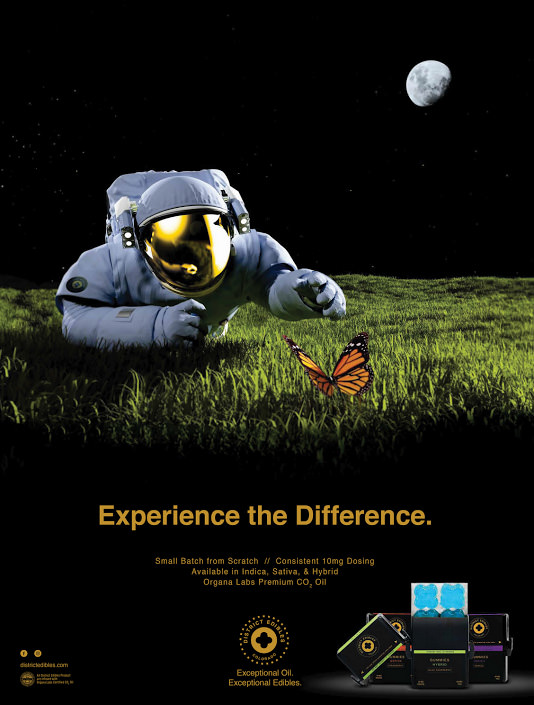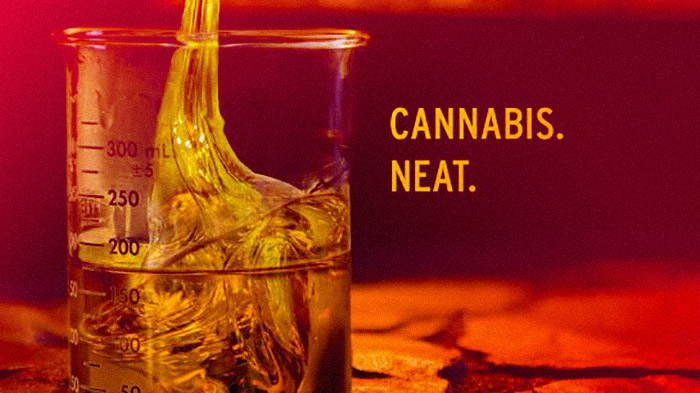At next week’s Telluride Blues and Brews Festival, attendees can mingle with 27,000 of their music-loving brethren, take in sets from Bonnie Raitt, Steve Winwood and the Blind Boys of Alabama and snag special offers from a nearby marijuana dispensary called the Telluride Green Room.
The latter perk comes courtesy of Organa Brands, a fast-growing cannabis company and event sponsor that’s also hosting a photo booth in a 1970s VW bus and open mic sessions with festival artists.
It’s part of co-founder Jeremy Heidl’s strategy of targeting customers when they’re just steps away, logistically speaking, from being able to buy Organa’s vape pens, edibles and other cannabis-infused products.
“We’ve had record weekends from that activation,” Heidl said recently. “It’s good for us to do big concerts here and there because they’re awareness builders, but you don’t want to be six degrees from a (sales) conversion. You want to make it count.”
Heidl is just one of many sharp marketing minds currently on hyperdrive in the cannabis industry, which topped $6.9 billion in legal sales last year, up 34 percent from 2015. He and his competitors (and partners like Telluride Green Room) are borrowing from traditional brands with rewards apps and in-store promotions and even taking a page from luxury marketers with celebrity seeding at Hollywood awards shows.

Netflix, as a stunt to hype its new Kathy Bates pot-centric comedy, Disjointed, launched a dozen strains of marijuana at a West Hollywood, California, dispensary themed to its original series.
The single-weekend pop-up shop at Alternative Herbal Health Services last month moved 27 pounds of marijuana with custom blends that aimed to capture the mood of BoJack Horseman, Lady Dynamite, Mystery Science Theater 3000: The Return and other hits on the streaming service.
The event, along with being eye-catching and high-profile (no pun intended), is helping to usher in a new era in marijuana marketing, where the stigma has largely faded in the face of legalization in a growing number of states and widespread public acceptance of both medical and recreational use. (A CBS News poll in April found that 61 percent of Americans support legalization).
Variety, one of Hollywood’s trade bibles, published its first special section this spring devoted to the weed business. Called “Legalization and Entertainment,” it featured stories about new investors and groundbreakers (dubbed “ganjapreneurs”), the plethora of scripted and unscripted television projects that hinge on the industry, and companies getting a foot in the door with Hollywood’s elite. (Green Gorilla’s hemp and olive CBD supplements, lip balm and pet care products, for instance, have been tucked into Grammy gift bags and the green rooms of Oscar presenters).
That section contained full-page glossy ads for marijuana brands like Toast, Big Bud and Charlotte’s Web.
Print ads like those have been scarce in the mainstream media, more often appearing in alternative weeklies and magazines like High Times, and television ads are still a pipe dream. Brands instead rely on digital, with social media being “necessary” but often too complicated and fraught with legal pitfalls to offer much return on investment, Heidl said.
As an experiment, some brands are buying billboards and car wraps (Las Vegas and Los Angeles are hotspots) while others are maintaining VIP programs to get their products into influencers’ hands backstage at comedy clubs, on film sets and embedded in pop culture touchstones like Coachella and the Hard music festival. Organa launched a rewards app that has 30,000 active users in Colorado alone, and offers incentives to “bud-tenders,” dispensary employees, for shilling their product line.
No matter the medium, pot marketing has definitely gone upscale, said Cynthia Salarizadeh, CEO of Salar Media Group, who works with a number of cannabis clients and recently released research on some brands’ luxury positioning.
A bespoke approach is more likely to reach “the mindful, mature customer,” she said, including professionals and women, often now referred to as “the Chardonnay mom” and her well-heeled friends. Brands are emphasizing their lifestyle fit and wellness message rather than the industry’s stoner heritage.
Look no further than the packaging itself, Salarizadeh said, which used to be garish and rough around the edges. “There’s a lot more science-based data on the pack, with THC levels and growth information,” she said, noting that some of those stats are legally required. “But in general, it’s much more professional looking.”
And gone are the grimy head shops of yesterday, replaced with sleek, modern spaces often modeled after Apple’s minimalist architecture, which serve as a welcome mat to older, affluent buyers.
MedMen, a management company and investment firm that operates well-appointed dispensaries in several areas, including Los Angeles and New York, holds in-store events that mirror established retail brands.
Patient appreciation days, once a week, bring consumers face-to-face with product sellers for education and sneak peeks into exclusive merchandise, according to MedMen spokesman Daniel Yi.
This kind of outreach is vital in a world where more than 700 brands have debuted in the last year, Yi said, citing a recent Headset study, as opposed to less than 50 introductions in 2015.
“Major retailers like Gelson’s and Whole Foods have been doing these kinds of events for years,” Yi said. “When there’s this much competition, everybody has to up their game.”

